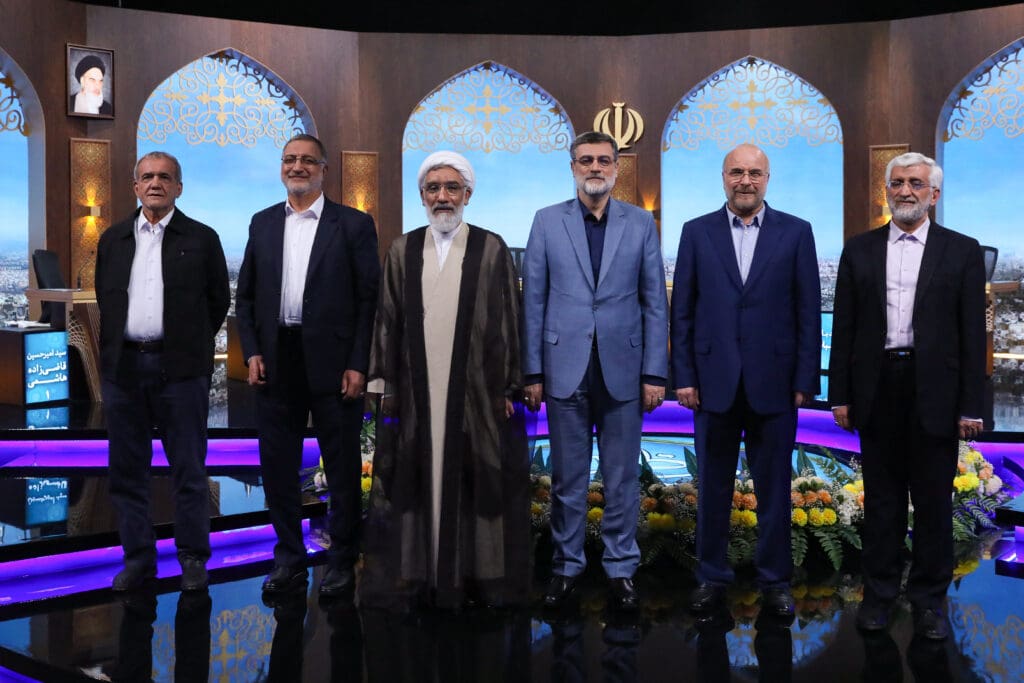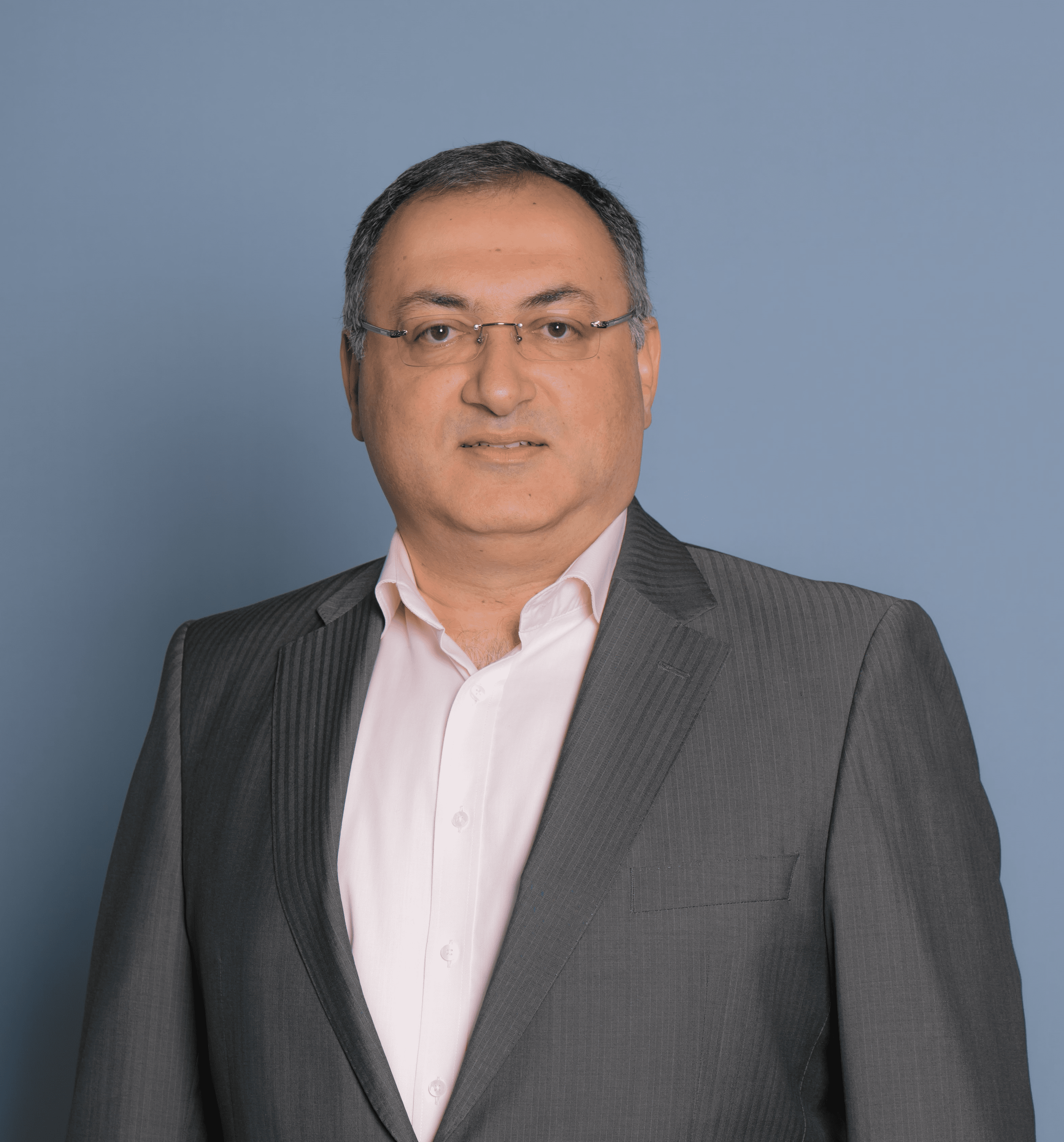As Iran heads to a snap election for a new president, questions over the government’s political legitimacy are once again surfacing. After the shock death of President Ebrahim Raisi in a helicopter crash on May 19, along with the foreign minister and a number of other officials, a new election to find his replacement was set for June 28—a year ahead of schedule. Yet much like when Raisi was elected in 2021 in one of the lowest voting turnouts since the Islamic Republic was established, many Iranians are once again expected to stay away from the polls. While the outcome is unlikely to change the future direction of the country’s domestic and foreign policies, it will again highlight the extent of political disillusionment with the ruling regime.
At home, the Iranian leadership faces a restive populace. In 2022, a large segment of the population rebelled against the state’s stifling repression as part of the “Woman, Life, Freedom” movement, which began as a protest against compulsory head covering and morphed into a call to end dictatorship.
Abroad, Iran has crossed an important and consequential threshold in its longstanding conflict with Israel. After the Israelis attacked Iran’s embassy in Damascus on April 1, the Iranian military launched a direct attack on Israeli soil for the first time, ending a years-long shadow war and, at least briefly, engaging in open warfare. While the event highlighted Iran’s capacity to inflict pain on Israel directly or through its many regional allies and proxies, it opened a dangerous new chapter for the incoming leader.
Out of 80 people who put their names in for contention, only six were cleared to run for office—all men. The 12-member Guardian Council appointed by Supreme Leader Ali Khamenei and the judiciary (which is also appointed by the supreme leader) vetted out candidates, primarily due to their political views and to Khamenei. Notably, the council excluded former President Mahmoud Ahmadinejad due to his testy relationship with the supreme leader. Also disqualified was Ali Larijani, a former speaker of the parliament, who has increasingly shifted away from the conservative camp and has expressed concern about extreme measures in imposing the hijab. However, it does beg the question as to why Masoud Pezeshkian, widely seen as a reformist in Iran and affiliated with former President Hassan Rouhani, made the cut.
The Guardian Council’s decision to allow Pezeshkian to run is likely a cynical ploy to increase voter turnout. Declining electoral participation has been a major concern for the leadership and its legitimacy. Voter turnout during the 2021 elections was just over 40%, a profound drop-off from the 73% participation rate in 2017 that kept Raisi’s predecessor, Hassan Rouhani, in office for a second term. The Iranian leadership views low turn-out as a significant indication of its popular decline.
Khamenei has repeatedly expressed the importance of lifting electoral participation as a measure of political legitimacy for the ruling regime. The irony is that the offices of president and parliament operate in a restricted political space with limited authority. In the Iranian political system, the supreme leader is the head of state and sets strategic directions in domestic and external affairs. He appoints the heads of the powerful Islamic Revolutionary Guards Corps (IRGC), judiciary, and state media, and appoints the secretary to the Supreme National Security Council, which makes key decisions on war and peace. This structure of control leaves little room for the president to alter course.
Therefore, not much can be expected to change following the upcoming election. Two candidates with name recognition are likely to be the front runners: Mohammad Ghalibaf and Said Jalili. Both have links to the IRGC and representing the dominant conservative camp in the Iranian political landscape. Ghalibaf has served as mayor of Tehran and speaker of the parliament. He has followed the political line set by Khamenei very closely. During the nuclear negotiations that occurred under Rouhani, for example, Ghalibaf merely echoed the qualified support given by the supreme leader. Ghalibaf is an insider with clear awareness of the hierarchy of authority and political redlines. He is unlikely to introduce any policy shift if he is elected.
Jalili is the representative of the Supreme Leader in the Supreme National Security Council and has worked in various capacities in the ministry of foreign affairs. He is widely seen as ideologically driven and representing hardline views within the conservative camp. He has publicly advocated for a formal break with nuclear negotiations and enhancement of uranium enrichment to 90%. This enrichment level is too high for civilian use and undermines repeated Iranian denials of pursuing weaponization of its nuclear program. Such a policy could only aggravate an already tense relationship between Iran and the United States. Jalili also advocates the strict application of state law on compulsory hijab.
Pezeshkian’s prospects of generating excitement and hope for change is seriously undermined by the disappointing track record of Khatami and Rouhani—former presidents who promised change but failed to deliver due to the closed political system. In the absence of large-scale voter participation, the choice is limited to different shades of grey in the conservative camp. It is difficult to expect changes in direction on key issues facing Iran as a result of the election. Yet the election could still prove important in revealing the extent, or lack thereof, of popular support for the regime.


